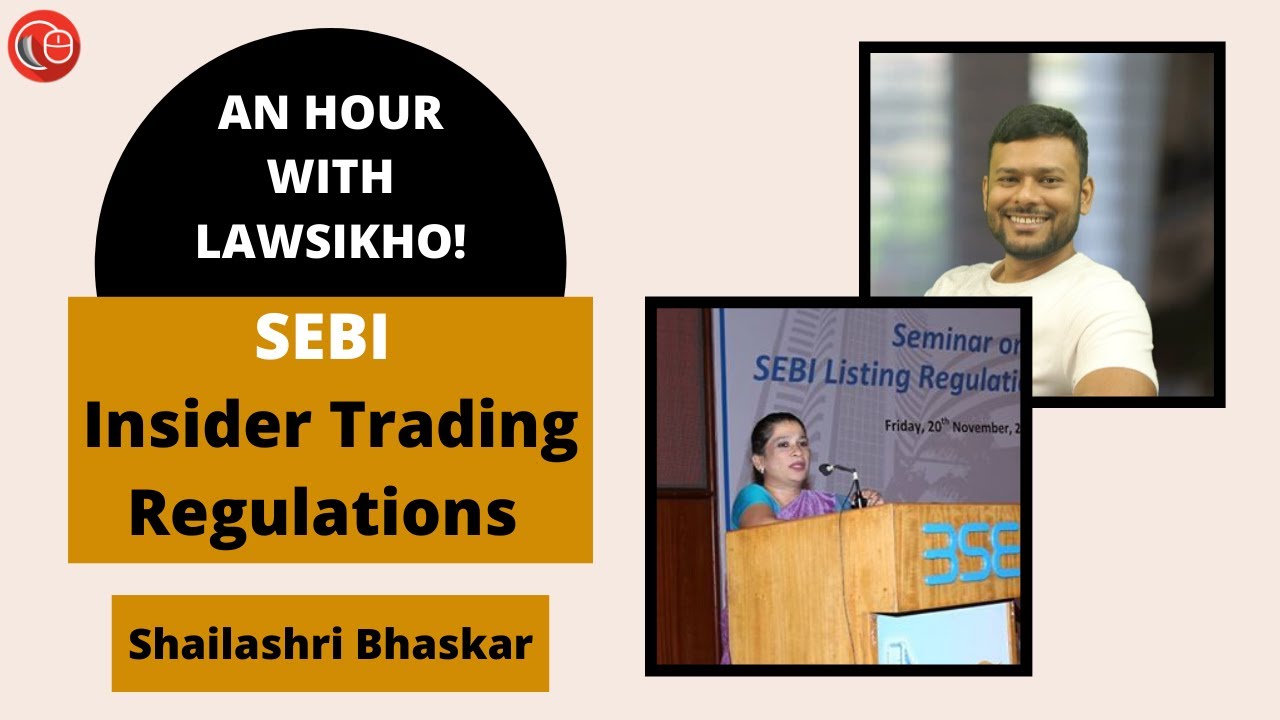Introduction
Going public is the ultimate dream of every startup founder. In fact, this is their investors’ dream too! Everyone wants to be able to have investments valued multiple times over their initial cost and be listed in the names of richest people on the basis of the value of their shareholdings in their business. Investors want to be able to exit their investments with a high degree of returns.
But going public or having a public issue isn’t a simple process. It requires a complete transformation for a company internally, to make itself suitable for being listed. An Initial Public Offering (IPO) requires such a detailed amount of planning and multiple activities being carried on simultaneously that you will find companies planning IPOs anywhere between one to two years before they actually go public.
Besides, an IPO is just the start. After an IPO, most companies will go for one or more methods of raising capital - there are many categories of equity or debt or even hybrid instruments that a company can use. Have you heard of NCDs and CCDs or even OCDs and wondered what these things were and the workings behind them?
For obvious reasons, professionals who are well versed with processes that are necessary before a company can hit the bourses are in high demand by law firms or by companies to work as in-house counsels in their legal and compliance teams.
There are professionals who have built thriving practices, luxury homes and swanky offices simply from advising clients on IPOs or working on a specific type of debt or equity instrument.
Frankly speaking, just knowing about either capital markets or securities disputes does not present the end-to-end picture of legal work required. Lawyers are often criticized by clients for having a limited vision about business and not looking at follow-on implications of their work. However, this is gradually changing.
With evolving client demands, the structure of the economy, technological improvement and automation of routine tasks, lawyers are increasingly required for performing higher-order thinking and taking strategic decisions based on multiple considerations. The complexity of today’s business makes the pool of competing considerations larger, and therefore lawyers who can see the bigger picture and predict further developments and trends will command a premium. The lawyers of today will be participating in the discussion of whether a company should go public in the first place, rather than how it should do that.
Sounds complex, doesn’t it? It could be. In fact, for the uninitiated, a capital markets transaction is no less than a veritable maze of inter-connected legal, financial and commercial considerations! But it becomes easy to navigate when you have a map.
And we give you that map with this unique course. Not only do we give you the map, but we also equip you with a GPS, so that there’s no way for you to get lost in the maze! This is the only course currently which focuses on three aspects:
- Transactional work arising from the proposed listing of a company or further issues of capital, either to the broader public or specific institutional buyers;
- Regular compliance post-listing which is continuous and extremely important for in-house counsel;
- Disputes related work post-listing;
- Role played by intermediaries in the capital markets transactions and disputes involving them.
You may wonder whether a recessionary economy and competition on capital markets work will lead to a lower demand for capital markets lawyers in the future. To infer that would imply that the Indian economy is forever doomed. But, if you think this is a current phase, then read on. Would you plan for the long-term or the current recessionary phase which may last for 3-5 years?
As long as the markets exist, there can never be a time when capital markets lawyers are not in demand! Because capital markets is not just about IPOs - even in a recession, companies are in dire need of capital - and they will come up with various debt and equity instruments - and guess which lawyer they will go to for those transactions?
But that’s not all. There is also a specialisation on capital market disputes. In fact, even in the coming years, there is a wide variety of securities-related disputes work which will be present.
While capital issues from companies depend on the stage of economic growth, the range of work mentioned above is recession-neutral.
Even if large companies do not raise billions in capital for a year or two owing to a recessionary slowdown, the SEBI will continue to initiate proceedings against defaulters for inadequate compliance, insider training or unfair trade practices-related disputes.
Mutual funds and other funds will keep being launched to find new investment opportunities for investors in different types of securities. The managers of these funds will need enormous legal support on these initiatives.
If you are an in-house counsel or a company secretary or a consultant advising a listed company, knowing about the requirements for keeping your company / client continuously listed on a bourse is as important as knowing how to get listed. Non-compliance with the SEBI (Listing Obligations and Disclosure Requirements) Regulations, 2015 is taken quite seriously by the stock exchanges and SEBI. Knowledge of what systems become necessary to be installed upon the transition of a company from an unlisted to a listed status is quite rare and someone who is able to advise comprehensively on this aspect is much sought after.
As a counsel to a listed company and intermediaries knowledge of the takeover regulations and the insider trading regulations is something you can’t afford to miss out on. Undertake a simple google search on penalties levied by SEBI and many cases of violations under these two regulations will jump out at you. If you’re able to bring in appropriate systems into a company for the compliance of these two regulations, that is something which will be much appreciated and well paid for, by the management.
Tribunal litigation is exciting. Unlike the courts, which can deal with matters related to multiple legislations, tribunals provide an opportunity to specialise in a specific area. Securities law is an immensely interesting area of practice for those interested in commercial litigation work.
It also provides young lawyers an opportunity to specialise and make a name early in their career. Unlike the High Courts and Supreme Court thronged by tens of thousands of lawyers, SEBI and Securities Appellate Tribunal (SAT) litigation attracts fewer but high quality lawyers.
SEBI and SAT matters are high stakes. If someone delves into this area with any seriousness, it can be very rewarding. Since these matters require an in depth understanding of securities laws, many lawyers do not possess such expertise and therefore avoid this work. You are therefore likely to meet with lesser competition.
Another misconception lawyers have is that they believe securities laws to be very complex, and that they require elaborate quantitative skills to understand such laws.
However, it takes no more than a 10th grader’s quantitative skills to be able to handle securities matter efficiently.
If you take a look at which lawyers represent clients before the Securities Appellate Tribunal, you will find that they are not necessarily from top tier law firms such as Shardul or Cyril Amarchand Mangaldas, Trilegal or AZB.
Most of them are second and third tier law firms. Some are independent litigators too. Lawyers who are experts at securities laws can advise clients on how to achieve the desired objectives without landing into a breach or generating suspicion which would invite regulatory action. If you are able to plan transactions in such a way, you are going to be in great demand.
What does that imply? Securities litigation is not a domain which is saturated or monopolized by a few firms, and there are huge opportunities for independent litigators and smaller law firms as well.
As an independent litigator or someone who runs his own law firm, this is an excellent practice area to delve into, especially if you are interested in financial and securities laws or commercial litigation.
Factors such as a slowdown in the economy will impact the volume and size of transactional work. Similarly, the implementation of artificial intelligence in the legal industry will automate many aspects of it.
However, disputes work increases in volume when there is an economic slowdown. It is also more immune to technological developments such as artificial intelligence.
Securities litigation work involves significant sums of money which are at stake because of a regulatory dispute. It is possible for a lawyer to very clearly demonstrate beneficial results to a client, and charge a premium for excellence.
In most cases before the Securities Appellate Tribunal the respondent is either SEBI or a stock exchange. Sometimes, the actions by the regulator can be arbitrary. If you are able to contest against such actions before the tribunal and win, this can not only be an incredible boost to your confidence, it can result in winning you more clients.
I witnessed a SAT hearing where a penalty levied by the regulator was reduced by INR 10 lakhs in a matter of less than 30 minutes. The client was elated!
Imagine how grateful he would be to the lawyer. Also imagine how such amazing results will enable a lawyer to charge a premium to a client.
Another peculiar aspect of the Securities Appellate Tribunal is that as on the date of writing this in October 2019, there is only one bench of SAT and that is in Mumbai. Hence, it isn’t like the National Company Law Tribunal, for instance, which has quite a few regional benches. There is less accessibility and lesser competition with respect to SAT in comparison with other tribunals such as the NCLT. If you specialise and create a name for yourself, even if you’re based outside Mumbai, your client will be willing to fly you and put you up in a nice hotel. Also, listed companies with corporate headquarters in other cities are happy to keep lawyers with this expertise on their panel or payroll, if such experts are at all available in their own city, which is rare.
You need to understand the provisions and intention behind the SEBI Act, its regulations and processes, the prevailing mechanism for protecting the ‘market’ from abuse, how various players are always trying to game the system given huge stakes involved, investor’s interest and so on. You need to develop the ability to apply litigation skills in conjunction with such specialised knowledge.
Many aspects of securities litigation are unique. You will need to understand various concepts behind SEBI’s regulations for IPOs and listing of debt securities and other instruments, Listing Obligations and Disclosure Requirements Regulations, Delisting Guidelines, Insider Trading Regulations, Unfair Trade Practices regulations and Takeover Code.
If you are working in the legal and compliance team or as a compliance officer, you have a thousand and one reasons why you should be aware of how to deal with SEBI and SAT, especially about the most contentious issues that lead to litigation. As the in-house counsel in such a company, you are in the best position to respond to show-cause notices, device policies or define strategy for defence and to lead any escalations on part of your organization. Whenever your company will get caught in some SAT litigation, you do not want to be blindsided, nor would you want to be at the mercy of outside counsel.
If you are working as an in-house counsel in a company which is growing fast and is on the way to an IPO, start preparing for this. You do not want to be caught off-guard. There are a host of securities legislations which start to become applicable to you as you move from the unlisted to the listed domain. You do not want to have the fear of waking up as a violator practically every day.
Further, SEBI can become active without prior warning and you may end up receiving a slew of show cause notices in connection with a securities acquisition or a trading practice.
The number and economic relevance of these cases increases for lawyers and compliance teams working with market intermediaries such as merchant bankers, portfolio managers, brokers, etc. Anyone working with corporate stock brokers or portfolio managers such as Motilal Oswal, Anand Rathi, Sharekhan, IIFL Securities will tell you about the extent to which the securities market intermediaries are regulated. Every move is required to be documented with precision.
There are frequent regulatory interactions which need to be adequately documented and corroborated with supporting evidence, else they will form the basis for an adverse legal action.
It needs a great degree of planning and preparation to install systems which ensure this compliance. Compliance officers of listed entities need to be on their toes to keep track of the applicable regulations, given that the amount of penalties that can be imposed by SEBI are far higher than say, penalties under the Companies Act, 2013.
As someone who will be advising your employer or your client, you will need to learn the skills not only to expertly deal with the litigation matters, but also to develop and install systems which can help to avoid litigation in the first place.
That is what we aim to deliver through this course, to lawyers who want to argue security law cases at the SAT as well as those who manage compliances and decide legal strategy from in-house legal teams or work in these areas at law firms.
Can I get remote freelance work after doing this course?
At LawSikho, we have two types of students: those who already possess good legal skills and those who are in the process of learning. We believe in enabling our learners to start earning from their knowledge without delay.
For students who possess advanced legal abilities, we provide chances to delve into criminal litigation and trial advocacy. This includes learning about presenting cases in court, handling criminal matters, and practicing trial techniques.
You'll gain insights into the legal procedures involved in criminal cases, how to support litigation, and strategies for effectively representing clients in trials.
However, we understand that acquiring professional-level skills takes time. For those who are still developing their legal skills, we provide alternative work opportunities such as writing articles, conducting research, legal transcription, data entry, law firm administration, social media management, and more. Some students even engage in tasks like voice-over work, data compilation, translation, and virtual assistance.
We have established a dedicated team that actively pitches to organizations in the US to help LawSikho students find remote work.
We have set up a US entity to bridge the trust gap between US legal professionals and an organization operating from India.
We focus on getting learners their first three clients, guiding them in crafting impressive proposals. By the time they secure these initial clients, learners become well-adjusted to the process and can independently attract more clients.
They build their CVs and profiles with real work experience and testimonials, opening doors to numerous opportunities.
Getting started is often the hardest part, but at LawSikho, we make the process frictionless. We have witnessed law students earning well over $1000 per month.
Some students have earned $500 in their first month as a side gig. We have students who, after a year, now earn $10,000 per month. While some may start with $300, they make progress by learning new skills, improving their profiles, and pitching for higher-paying work.
Between April 2021 and June 2023, we created over 21000+ opportunities for our learners, resulting in thousands of students securing freelance work. The total value of work secured amounts to over $3,30,000 (Approx INR 2.7 Crore). Additionally, hundreds of individuals found employment, and secured internships.
Please note that these numbers represent the initial gigs facilitated directly by us or those on which we actively collaborated with the learners. Students have also secured additional work beyond our tracking.























 Key Highlights
Key Highlights








 Banking
Banking  Legal
Legal  Insurance
Insurance  REGULATORY AND BOURSES
REGULATORY AND BOURSES  STOCK-BROKERS
STOCK-BROKERS  PORTFOLIO MANAGEMENT COMPANIES
PORTFOLIO MANAGEMENT COMPANIES  MERCHANT BANKERS
MERCHANT BANKERS  OTHER SECURITIES MARKET INTERMEDIARIES
OTHER SECURITIES MARKET INTERMEDIARIES  NBFC
NBFC 














 ADDICTIVE LEARNING TECHNOLOGY LIMITED
ADDICTIVE LEARNING TECHNOLOGY LIMITED











